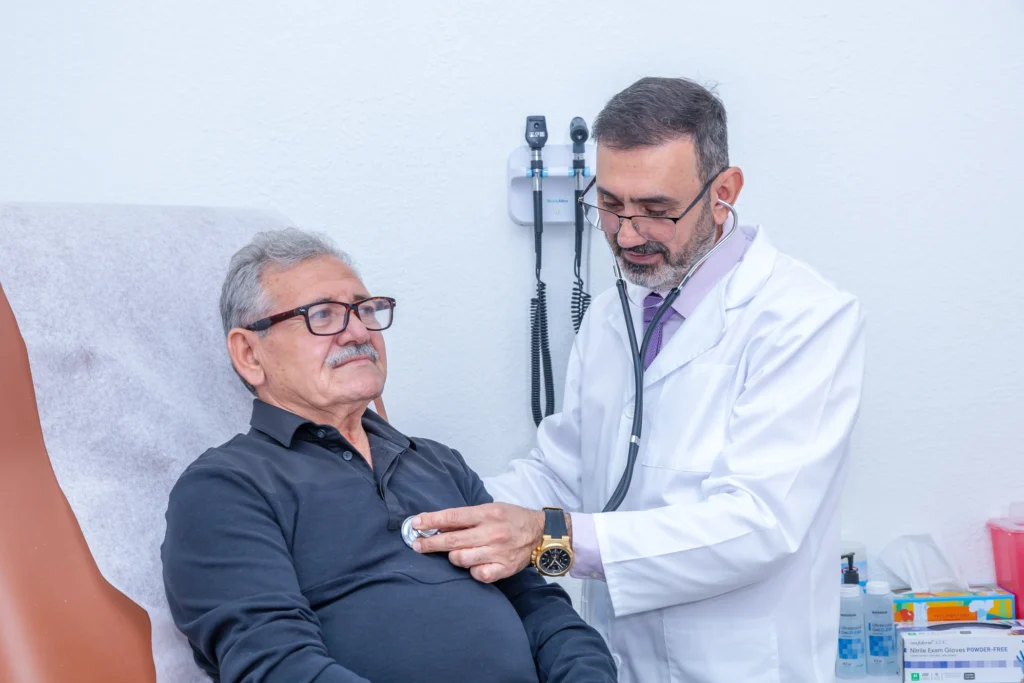Worried about your blood pressure? Wondering where to get it checked without breaking the bank or waiting forever? If you’re near Louetta Road, you’re in luck! We’ll walk you through where you can get reliable blood pressure screenings and why it’s so important.
Blood Pressure Checks: Where to Get Screened Near Louetta Road
Keeping tabs on your blood pressure is a key part of staying healthy. High blood pressure often has no symptoms, but it can lead to serious problems like heart disease and stroke. Let’s explore your options for getting checked in our neck of the woods.
Why Regular Blood Pressure Checks Matter
Why bother with regular checks? Well, early detection is crucial! Here’s why:
- Silent Killer: High blood pressure (hypertension) often has no noticeable symptoms.
- Preventive Care: Regular checks help catch it early, before it causes damage.
- Manageable Condition: With lifestyle changes and sometimes medication, high blood pressure can be managed.
Where Can I Get My Blood Pressure Checked Near Louetta Road?
You’ve got several choices for getting your blood pressure checked around here. Here’s a rundown:
- Your Doctor’s Office: This is often the most convenient option. We at Dr. A Patient Care, located at 5523 Louetta Rd STE C, Spring, TX 77379, USA, offer blood pressure screenings as part of our comprehensive wellness visits and annual physicals. Plus, if needed, we can help with hypertension management.
- Pharmacies: Many pharmacies, like Walgreens and CVS, have blood pressure kiosks where you can check yourself. Just ask a pharmacist if you need help.
- Urgent Care Centers: Places like Memorial Hermann Urgent Care offer walk-in blood pressure checks. Ideal if you need a quick check and can’t wait for an appointment.
- Community Health Fairs: Keep an eye out for local health fairs – they often offer free blood pressure screenings.
What to Expect During a Blood Pressure Check
The process is quick and painless! Here’s what usually happens:
- Preparation: You’ll sit comfortably in a chair with your arm supported.
- Cuff Placement: A cuff is placed around your upper arm.
- Inflation: The cuff inflates, squeezing your arm briefly.
- Reading: The machine measures your blood pressure and displays the results.
- Discussion: We’ll discuss the results with you and advise on next steps, if needed.
Understanding Your Blood Pressure Reading
Blood pressure is measured with two numbers:
- Systolic: The top number, which measures the pressure in your arteries when your heart beats.
- Diastolic: The bottom number, which measures the pressure in your arteries when your heart rests between beats.
Here’s a general guide to blood pressure categories (but remember to always discuss your results with a healthcare professional!):
- Normal: Less than 120/80 mmHg
- Elevated: 120-129 systolic and less than 80 diastolic
- High Blood Pressure (Hypertension) Stage 1: 130-139 systolic or 80-89 diastolic
- High Blood Pressure (Hypertension) Stage 2: 140/90 mmHg or higher
- Hypertensive Crisis: Higher than 180/120 mmHg (requires immediate medical attention)

Tips for Maintaining Healthy Blood Pressure
Besides getting regular checks, you can also take steps to keep your blood pressure in a healthy range. These simple lifestyle changes can make a big difference:
- Eat a Healthy Diet: Focus on fruits, vegetables, and whole grains. Reduce sodium intake, which can be found in many processed foods. Need help? Check out our weight management programs.
- Exercise Regularly: Aim for at least 30 minutes of moderate-intensity exercise most days of the week.
- Maintain a Healthy Weight: Losing even a small amount of weight can lower your blood pressure.
- Limit Alcohol: If you drink alcohol, do so in moderation.
- Don’t Smoke: Smoking raises blood pressure and increases your risk of heart disease. We offer smoking cessation support too!
- Manage Stress: Stress can temporarily raise blood pressure. Find healthy ways to manage stress, such as yoga, meditation, or spending time in nature. We can help connect you with mental health support resources in our area.
FAQs About Blood Pressure Checks
Got questions? We’ve got answers! Here are some common queries we hear:
- How often should I get my blood pressure checked?
- It depends on your risk factors and current blood pressure. Generally, if your blood pressure is normal, you should get it checked at least every two years. If you have risk factors for high blood pressure, such as a family history of hypertension, or if your blood pressure is elevated, you should get it checked more often. Talk to us to get personalized advice.
- Can I check my blood pressure at home?
- Yes! Home blood pressure monitors are readily available. It’s a good idea to bring your monitor to our office to ensure it is accurate.
- What if my blood pressure is high?
- Don’t panic! We can discuss lifestyle changes and, if necessary, prescribe medication to help lower it.
- Does insurance cover blood pressure checks?
- Most insurance plans cover blood pressure screenings as part of routine checkups. You can always check your coverage details with your insurance provider or give us a call at our office to confirm.
Taking care of your health is something we’re passionate about, and that includes making sure you know where to get your blood pressure checks done. Whether it’s with us at Dr. A Patient Care or another convenient location near Louetta Road, prioritize this simple yet vital screening!

